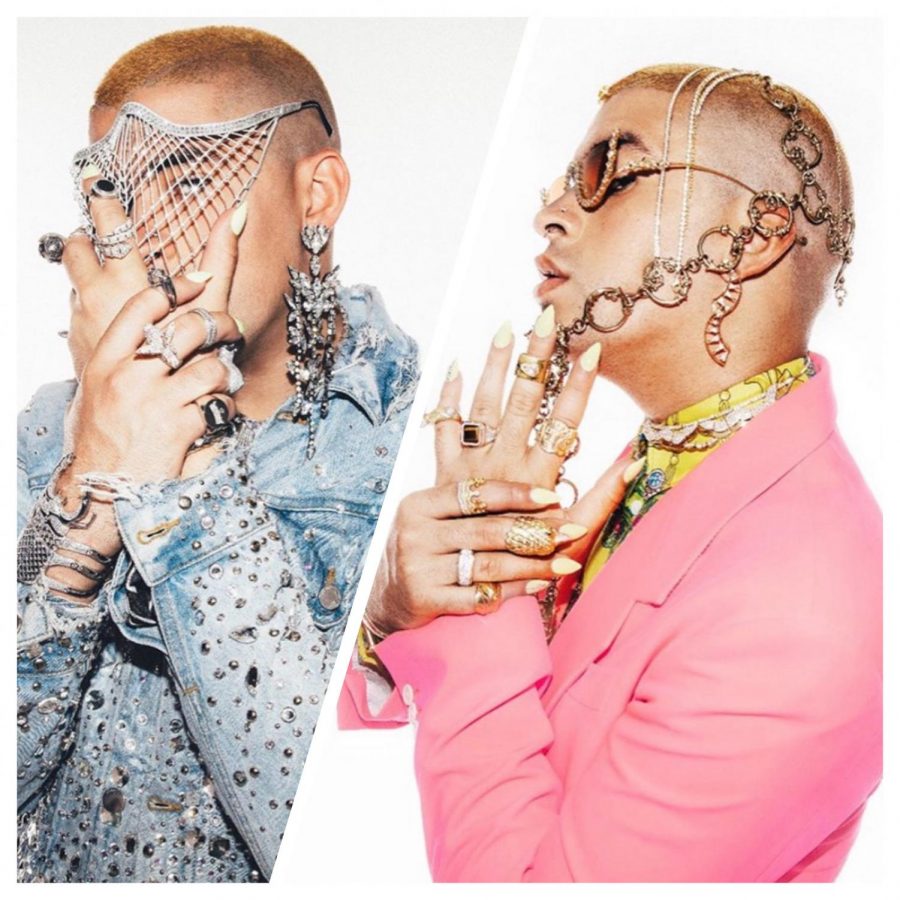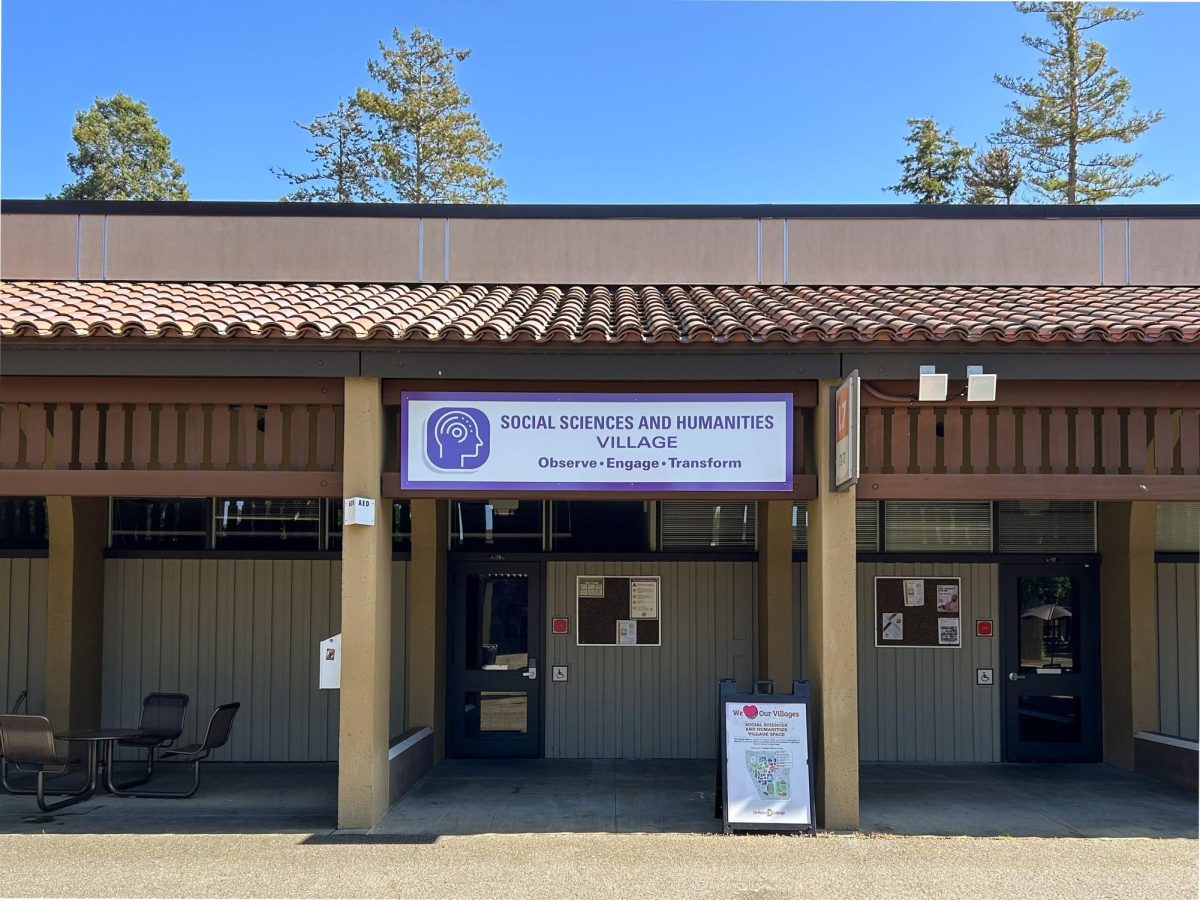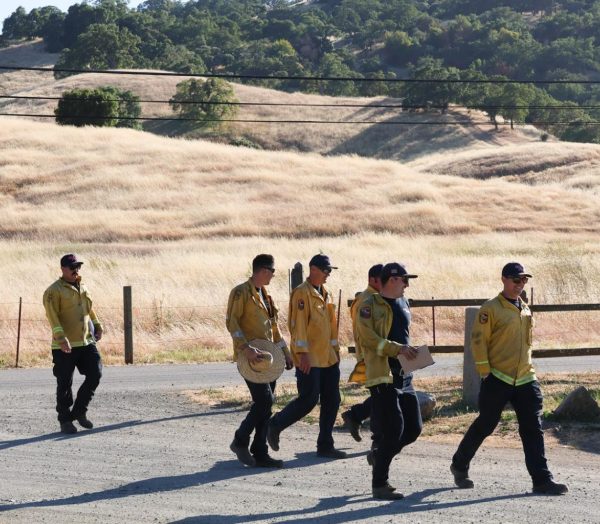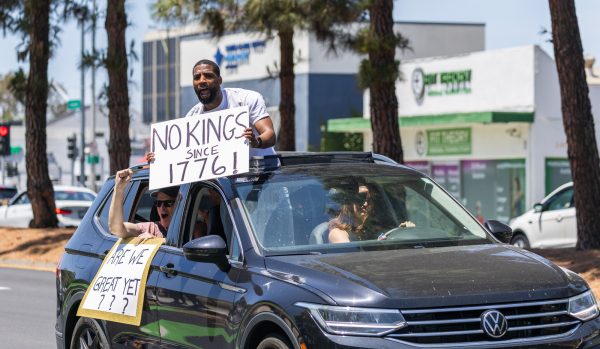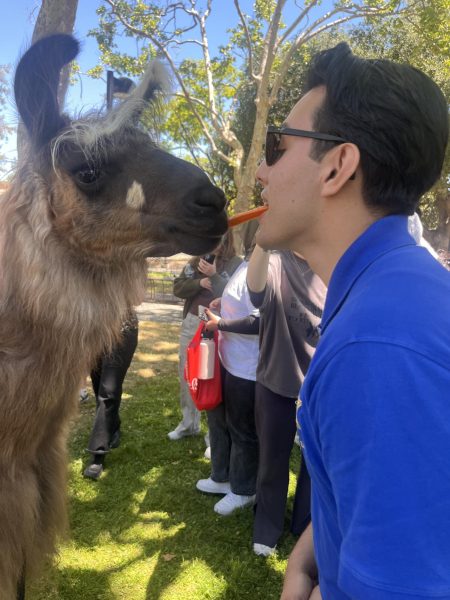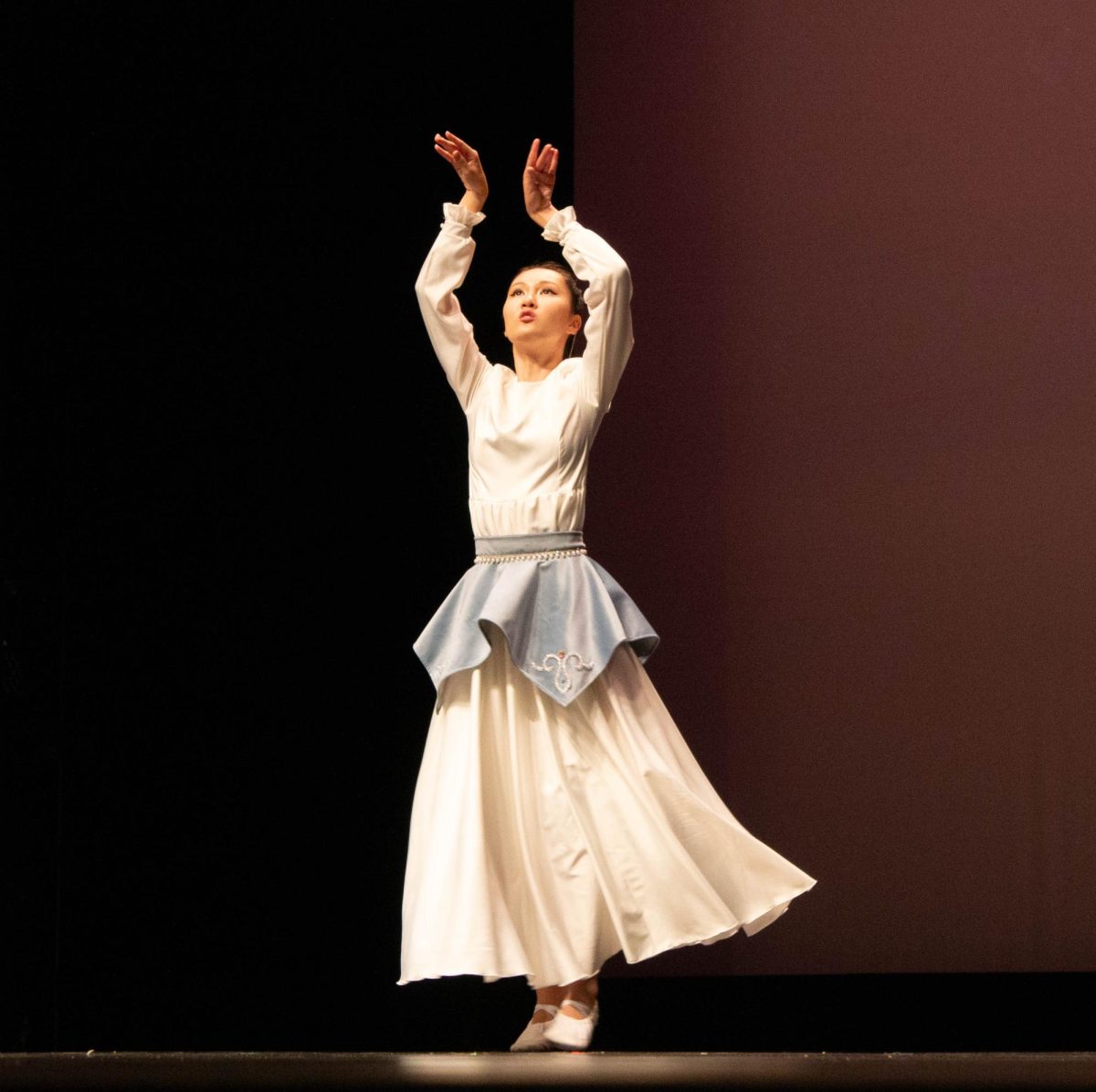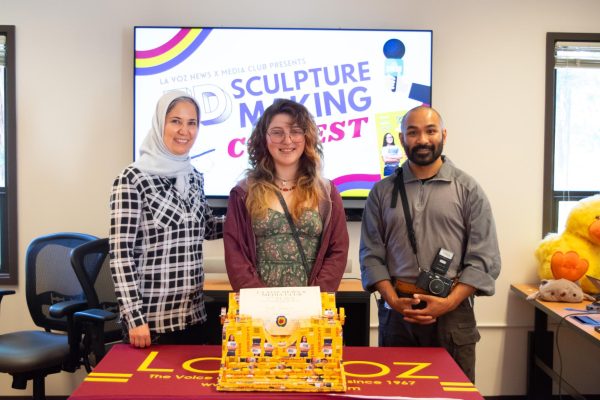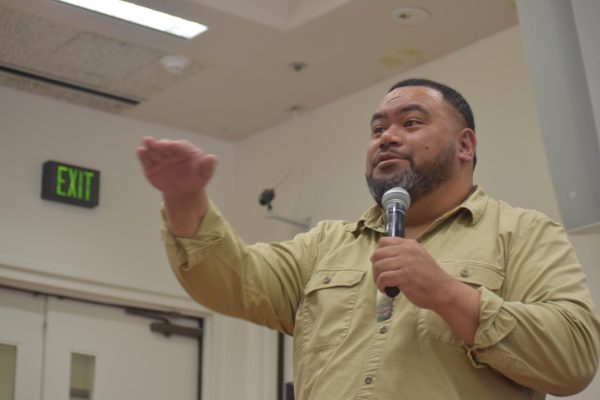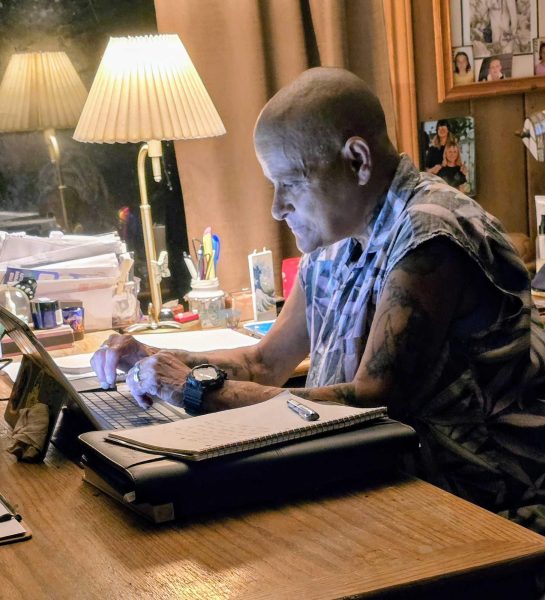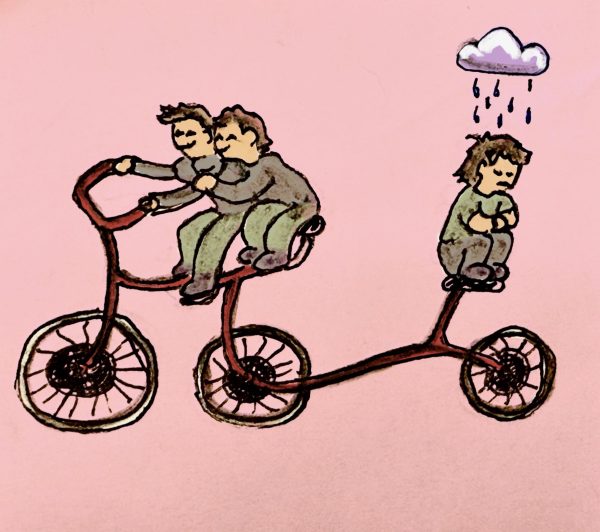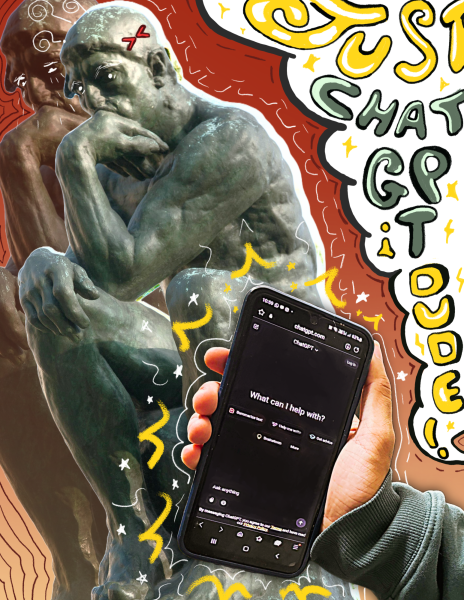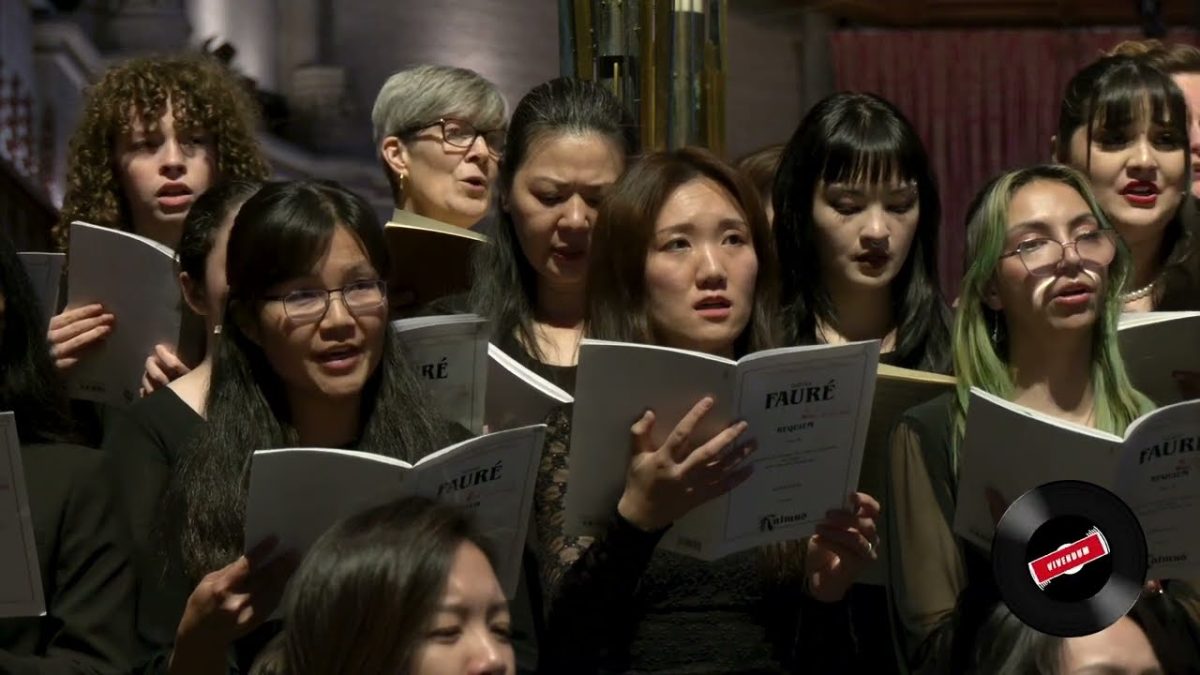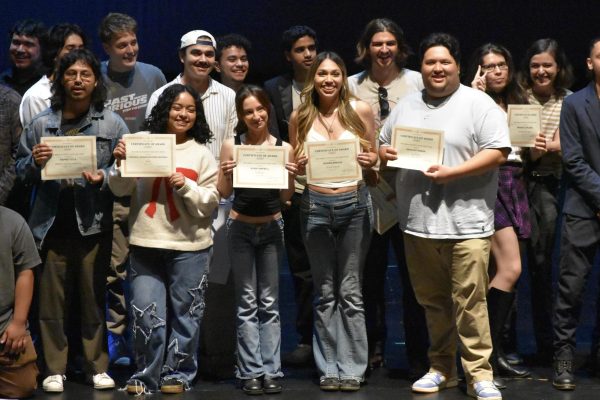Bad Bunny is creating leaps of progression in a machismo run field
Bad Bunny for Paper magazine via Bad Bunny’s Instagram, @badbunnypr. Photographed by Robert John Kley.
June 3, 2020
Bad Bunny’s catchy Grammy award-winning music is not all there is to him, he’s also been using his ever-growing platform to advocate for women’s rights and LGBTQIA+ communities.
Benito Antonio Martinez Ocasio, 26, or better known to the world as ‘Bad Bunny’, is truly an innovator in the Latinx music industry.
Born in Vega Baja, Puerto Rico, Martinez started making his mark in the reggaetòn/Latinx trap world when he signed a deal with the production team Mambo Kingz back in 2016.
Martinez grabbed the audience’s attention with his low toned voice and flashy style; a style that over the years has included skirts, bedazzled jackets, painted nails and lots of jewelry.
Earlier this month, Martinez became the first-ever Latino urban artist to be featured on the cover of Rolling Stone, in which he expressed his thoughts on the matter of his sexuality.
“I have always felt like there was a part of me that is very feminine,” said Martinez, “But I never felt as masculine as I did the day I dressed up like a drag queen,” referring to one of his latest music videos titled “Yo perreo sola”, translated means “I twerk alone.”
The track itself sparked massive waves among his female audience, given it is a song mainly from a female’s perspective on how she feels liberated to make her own calls on the dance floor, not needing any unnecessary attention from a male.
I have never been more surprised and impressed than when I saw Martinez up in drag, boldly dancing along to his track in a latex mini skirt and thigh-high boots, a sight that has never been seen or done before by any urban pop Latinx artist.
Another instance in which Martinez decided to rock a skirt was during his February appearance on ‘The Tonight Show starring Jimmy Fallon,’ where his intention seemed more politically driven rather than strictly fashion.
As he’s performing, Martinez slowly opens up his oversized blazer that reveals a shirt that reads “They killed Alexa, not a man with a skirt.”
Known to have been vocal about issues impacting Puerto Rico, Martinez used his appearance to bring awareness to the killing of a homeless transgender woman, Alexa Negron Luciano, whom Puerto Rican headlines described her as a “man with a skirt.”
Actions like these create a conversation, especially since stories like Alexa’s will not have been shared anywhere past Puerto Rico.
Using a platform that gets the word out opens the eyes of many around the world and allows citizens to become more involved.
Reggaetòn and urban Latinx music has been primarily a boys club until now.
In an NRP interview back in February, Ivy Queen, 48, a female pioneer in the reggaeton industry remembers what it was like when she was first signed with rapper and producer DJ Negro.
“They were like kind of, you know, working with their testosterone,” she said. “They be like ‘We don’t have girls here, consider yourself the first,’ from that day on I’ve had to prove myself.”
Much of the issues from this industry stems from over-sexualizing women or simply just not having enough woman representation.
As explained by Sana Saeed on the AJ+ YouTube page, “Women are usually presented in music videos and on album covers as scantily clad models often faceless. When they’re singing, they’re usually voices in the background exclaiming sexualized phrases…or offering sexualized hooks for the songs,” said Saeed.
Very little steered the category in a fresh new direction, until recently.
Young men who at first follow Bad Bunny for his music, will take notice of his actions and become inspired to take part in normalizing feminism and self expression.
Young women might take notice as well and feel confident to know they have male ally’s in such a patriarchal society.
Having grown up listening to early 2000’s reggaetòn music, I find it astonishing to see the positive shifts in popular culture, especially through the eyes of a female in the Latinx community.



